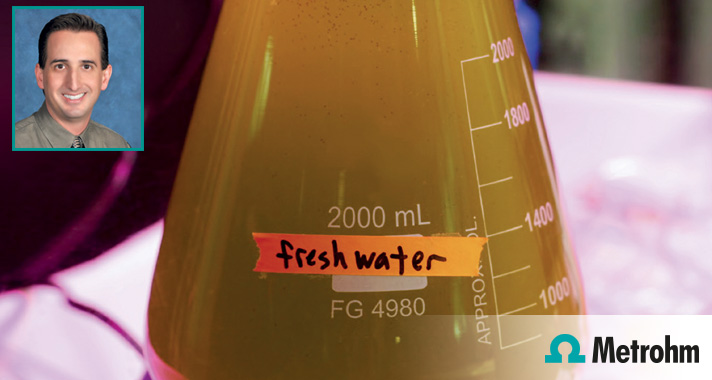Environmental laboratories often need to analyse heavily contaminated samples which must be filtered and diluted first.
Brad Meadows is Vice President and Lab Director at the US company BSK Labs, which runs a number of environmental laboratories and service centers. Brad is an analytical chemist and has been working in analytical lab management for 15 years.
In the consideration of buying a new ion chromatograph, BSK Labs tested a Metrohm ion chromatography system with automatic ultrafiltration and dilution.
Brad shared his experiences with Metrohm ion chromatography with us in the form of concrete facts and figures.
The challenges of the environmental lab
One of the most important analysis methods for American environmental labs is the determination of inorganic anions in accordance with EPA 300.1 Part A. In this standard, the United States Environmental Protection Agency (EPA) describes how to analyze various substances including chloride, sulfate, bromide, nitrate, and nitrite not only in different types of water and waste water, but also in solids (following extraction) and leachates, using ion chromatography.
The nature of the samples measured in environmental labs is such that sample preparation is required – this always involves filtering the samples, and in many cases diluting them as well. This is the only way to prevent damage to the analysis system and to achieve accurate results. Sample preparation is expensive for BSK Labs, as it involves a lot of work as well as costly consumables.
Fully automated Inline Ultrafiltration protects the separation column – and the budget
At BSK Labs, all samples are filtered before being analyzed. This prevents dirt from the sample contaminating the separation column – which significantly improves its service life. The high volume of samples drove material cost down substantially, to only 1 US dollar per filter. However, since each sample requires a new filter, with 14,300 samples a year this still amounts to $14,300 – just for filtration materials.
The integrated ultrafiltration in the ion chromatography system from Metrohm only needs one filter change per day, saving BSK Labs over $12,000 per year.
What’s more, the ultrafiltration process is fully automated. Compared to the manual filtration previously used at BSK Labs, this saves three minutes’ working time per sample. With labor costs of $18 per hour, this again corresponds to savings of around $13,000 per year. Overall, therefore, using ultrafiltration saves over $25,000 in annual expenditure.
The full report can be found via the link below.









